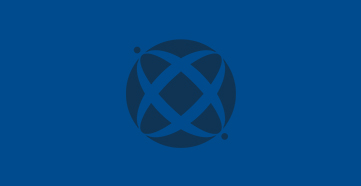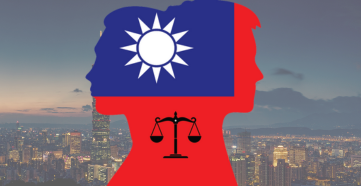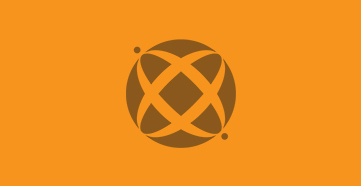|
|
Feb 17, 2023
This article will outline the development of China’s restrictions on the cross-border transfer of personal information (PI export), detailing PI export mechanisms provided by the Personal Information Protection Law. It will also explain the practical implications of the restrictions.
Apr 22, 2022
This article discusses the recent SEC case involving PwC and highlights the wider implications for intermediary institutions providing professional services in a tightened regulatory and enforcement regime in China’s banking and financial sector.
Jun 12, 2024
The new Foreign State Immunity Law 2023 of the People’s Republic of China came into force on 1 January 2024. This shifts the country (as well as its special administrative regions, Hong Kong and Macau) away from absolute state immunity to restrictive state immunity, bringing it more in line with the relatively prevalent practice among the international community. This article discusses the status of state immunity in public international law, analyses the new law’s provisions and examines practical challenges that will be faced by those seeking to utilise this law to enforce judgments or awards against foreign states and state entities, and the new law’s innovations that go beyond the United Nations Convention on Jurisdictional Immunities of States and Their Property of 2004 and the UK State Immunity Act 1978.

Sep 27, 2023
The rise in popularity of generative artificial intelligence (‘generative AI’) has ignited the discussion on whether junior employees can be replaced by it. Some have gone to the extent of questioning whether professionals, such as lawyers, can also be replaced by generative AI. Is it wise to replace junior employees or lawyers with generative AI? What factors should be considered before deploying generative AI tools in your business? To consider these questions, we first need to understand the basic workings of generative AI and what it can offer. Fundamentally, AI is intelligence that is not biological. The general understanding is that machines will be ascribed with this intelligence. These machines have the ability to interpret, learn from and process external data in a way that is similar to the capabilities of the human mind. Generative AI is a type of AI program that generates content from a data set. It uses deep learning, a type of machine learning system that behaves like a neural network to simulate the functions of a human brain. In other words, it can mimic human intelligence by exhibiting analytical skills to create new content. Not only can generative AI be utilised in chatbot programs to create text, but it can also be used in programs that can create images, sound or videos. This article will consider two major forms of generative AI, in the context of risks to businesses: chatbots using generative pre-trained transformer technology programs; and image generating programs.
By Yi-An (Ann) Lai. Alipay and the impact of e-payment systems resulting in new regulations in China and other jurisdictions.
Jun 25, 2024
As in many other parts of the world, the age-old activity of gambling also finds various references in Indian history and mythology. While ancient texts such as the Rig Veda, Atharva Veda, Ramayana and Mahabharata caution against its harms, others such as the Katyayana Smriti, Manu Smriti and Narad Smriti support its regulated existence, citing its potential as a source of revenue for the Kingdom
Dec 13, 2021
Alongside mediation, conciliation and the Singapore Convention, this article addresses the lack of a uniform mediation Act and the rise of commercial mediation centres, and the future of commercial mediation.
Apr 22, 2025
The latest research by the International Bar Association (IBA) Legal Policy & Research Unit (LPRU) into gender disparity in the law across the world is focused on Taiwan. The findings reveal that women are underrepresented at the top of the profession in…
Jul 22, 2024
Online bets have become one of the most interesting and lucrative markets of the entertainment industry. Nevertheless, the private sector operation is highly regulated in Colombia.
Nov 15, 2021
The Hong Kong Court of Final Appeal clarifies that who is considered a “friend” pursuant to the Prison Rules in respect of visitation rights for inmates awaiting trial and with the presumption of innocence, and whether a friend has to be someone with a personal or intimate relationship with the inmate.
The IBA's LPRU has published a report on the nature and prevalence of bullying and sexual harassment in the legal profession around the world, based on the findings of its extensive 2018 survey on the subject. It offers both observations and recommendations for action. The IBA hopes that the report will encourage law firms to revisit their policies and training for responding to and preventing bullying and harassment.
Mar 18, 2025
This article provides an analysis of the new legal and regulatory framework arising from the approval of the Law of Bases and Starting Points for the Freedom of Argentines 27,742 and the Incentive Regime for Large Investments (the RIGI) as an investment protection mechanism for megaprojects in the technology sector.

Jun 01, 2022
Hot on the heels of the ‘corporate purpose’ and environmental, social and governance (ESG) debates, investor stewardship is the latest buzzword in comparative corporate governance. What started as a domestic regulatory initiative in the United Kingdom in 2010 morphed into a global phenomenon and eventually reached Indian shores. A stewardship code is essentially a principles-based framework, which aids institutional investors in fulfilling their responsibilities, in terms of protecting and enhancing the value of their clients. A corollary of this, meaningful implementation of the stewardship principles also improves the corporate governance practices of the investee companies – institutional investors are required to actively engage as ‘stewards’ in the corporate governance of their portfolio companies. The Insurance Regulatory and Development Authority of India (IRDAI) floated its stewardship code in 2017 (and revised in 2020) and the Pension Fund Regulatory and Development Authority (PFRDA) followed suit in 2018. Most recently, the stewardship code of the Securities and Exchange Board of India (SEBI) (India’s capital markets regulator) was implemented in July 2020 and the SEBI, through a separate circular dated 5 March 2021, also mandated mutual funds to vote on all resolutions from 1 April 2022 (collectively, the IRDAI, PFRDA and SEBI stewardship codes are referred to as ‘the Indian stewardship codes’). Today, UK-style stewardship codes have been exported to over 20 jurisdictions, and the Indian stewardship codes resonate with the global stewardship movement and the drive towards corporate sustainability and engagement on ESG-related issues. However, while the Indian stewardship codes have made a laudatory start, there is significant scope for improvement, in light of developments in the global stewardship movement. One significant reason why improvements are necessitated is the modelling of the Indian stewardship codes along the lines of the UK code. This modelling has overlooked the differences in cross-jurisdictional shareholding patterns and consequently limited its success – the article explores the structural weaknesses flowing from the transplantation of the UK code to India (a country with a concentrated shareholding pattern).
IBA Global Insight Aug/Sept 2019: In February, the European Commission blocked the merger between Germany’s Siemens and France’s Alstom, prompting renewed calls for reform to help industry compete on a world stage. Global Insight assesses the decision, the fallout and whether Europe should finally embrace its ‘champions’.
Feb 05, 2025
The article discusses the calls for a new enforcement approach with respect to ‘digital ecosystems’. The authors argue that, from a competition law perspective, the concept of a digital ecosystem overlaps considerably with well-established concepts such as conglomerate firms and multi-sided platforms. In fact, on close scrutiny, the competition issues raised by digital ecosystems have already been encountered, which suggest that the tools to evaluate these phenomena already exist. Importantly, because business ecosystems can generate substantial consumer benefits, antitrust enforcement should be based on cogent economic theories of harm, supported by evidence that any harm outweighs efficiency benefits. There is, therefore, a danger of over enforcement where the ‘ecosystem’ label is used to lower intervention thresholds in respect of traditional competition concerns, diluting well-established limiting principles and increasing the probability of enforcement error.
Jun 02, 2021
While the pandemic disruption has extended for far longer than initially expected, courts (after the first wave), arbitral institutions and stakeholders in commercial dispute resolution have largely continued operations, increasingly supported by innovative digital technology, flexible scheduling and flexible cost structures, among other tools.
|












